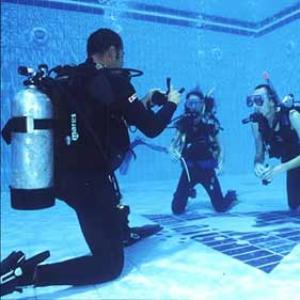
Neuropsychologists Professor Ann Shuttleworth-Edwards and her former doctoral student Dr Victoria Whitefield-Alexander steer a national clinical and research programme on the use of computerized neurocognitive screening using the ImPACT programme to facilitate the medical management of sports concussion. Against this background they were invited to present a paper at an international conference on diving medicine that was held at the Cape Town International Convention Centre in March last year on the potential for the use of similar screening for divers.
The theme of their paper entitled “A proposal for neurocognitive screening within the diving context: Taking the cue from medical management of sports concussion”,was to draw attention to concerns about brain damage in the breathing assisted diving context. Within the diving arena there are significant parallels to risk of neurocognitive decline due to cumulative brain damage in sports such as boxing, rugby and football. Shuttleworth-Edwards and Whitefield-Alexander propose that, as is currently being implemented in the contact sports, computerized neurocognitive screening should be used to protect against cerebral catastrophe and the incipient development of the ‘punch drunk diver’. They point out that research and clinical opportunities are wide open in this untapped area to bring diving medicine abreast of the modern mode for management of the cerebral injury.
Shuttleworth-Edwards, A.B., & Whitefield-Alexander, V. (2011, 16-19 March). A proposal for neurocognitive screening within the diving context: Taking the cue from medical management of sports concussion. Invited presentation at the 17thInternational Congress of Hyperbaric Medicine (ICHM), Cape Town International Convention Centre (CTICC), Cape Town, South Africa
